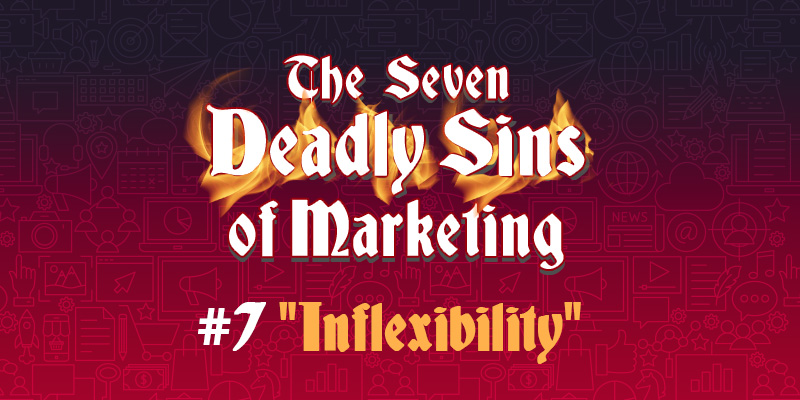The success of the human race flows from our adaptability. Throughout history, and even prehistory, our species has turned lemons into lemonade.
Ironically, though, on an individual level we can be, well, inflexible. Reluctant to change. Having mastered how things already work, we like them to keep working that way. It’s comfortable that way.
But that’s not going to work in marketing.
Especially not in the digital age, when Artificial Intelligence is revolutionizing the way graphic design and search engines work, and when platforms and tools like Google, Facebook, Twitter and everyone else make radical changes pretty much every day.
Meaning: that whatever worked for you last year is not working out the same way today.
Those new ways may seem annoying at first — but they carry big outcomes once you’ve mastered them. (Remember when you had to hunt down a phone booth to call someone? Or use correction fluid when you were typing on paper?)
Three simple steps can bring you into today:
1. Consciously re-evaluate what you’ve been doing, to ask yourself if it’s still working
Identifying your most profitable clients can help you determine your marketing approach to get them to buy (or donate) more. Identifying your least profitable segments can help you decide whether you want to spend more resources on them now, or have a follow up touchpoint later.
2. When you hear about a new development, look for the upside
Your best customer is your existing customer. You already have a relationship with them, and you’ve already invested the time (and therefore money) in selling to them, so they should cost you less than new customers. And, because of the mutual trust you’ve established, selling more to your existing clients can be more effective than selling to new customers. Google Ads and Facebook Ads offer the ability to retarget those who have purchased products in the past and can show them a relevant, personalized ad based on their purchase.
3. Decide what to ignore
No, you can’t do it all. Nor should you. So it’s important to evaluate, adopt what’s beneficial, and trash the rest.Whatever you decide to do, be thoughtful and forward-looking. A lot of these new developments might just make your work easier and more rewarding.
Want help evaluating your marketing, strategy, or communications? We can help.

